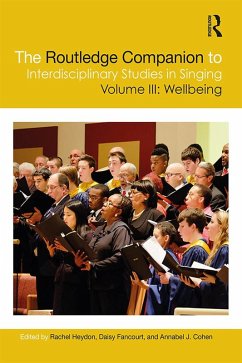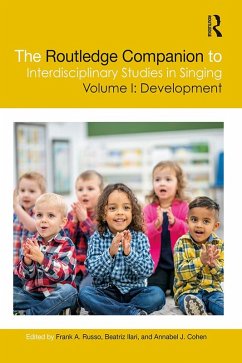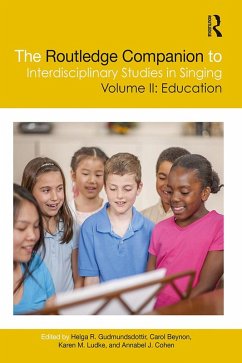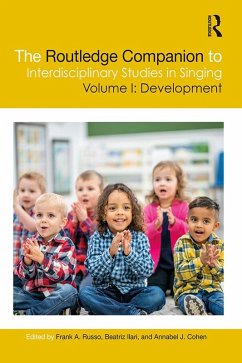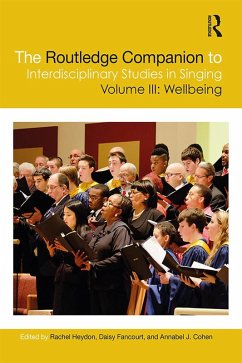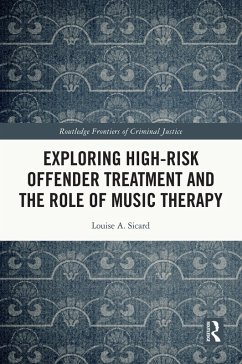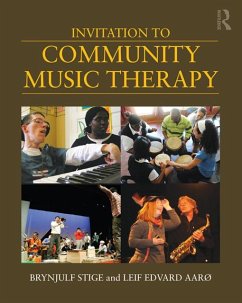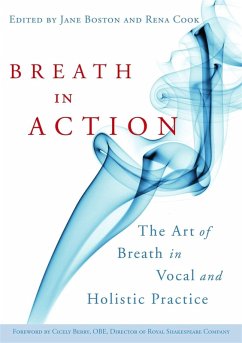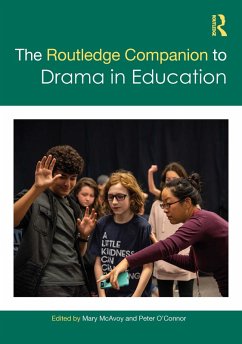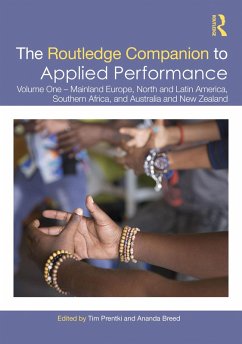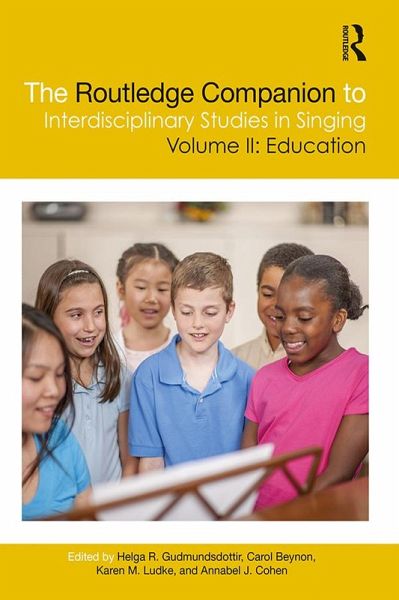
The Routledge Companion to Interdisciplinary Studies in Singing, Volume II: Education (eBook, ePUB)
Versandkostenfrei!
Sofort per Download lieferbar
46,95 €
inkl. MwSt.
Weitere Ausgaben:

PAYBACK Punkte
23 °P sammeln!
The Routledge Companion to Interdisciplinary Studies in Singing, Volume II: Education examines the many methods and motivations for vocal pedagogy, promoting singing not just as an art form arising from the musical instrument found within every individual but also as a means of communication with social, psychological, and didactic functions. Presenting research from myriad fields of study beyond music-including psychology, education, sociology, computer science, linguistics, physiology, and neuroscience-the contributors address singing in three parts: Learning to Sing Naturally Formal Teachin...
The Routledge Companion to Interdisciplinary Studies in Singing, Volume II: Education examines the many methods and motivations for vocal pedagogy, promoting singing not just as an art form arising from the musical instrument found within every individual but also as a means of communication with social, psychological, and didactic functions. Presenting research from myriad fields of study beyond music-including psychology, education, sociology, computer science, linguistics, physiology, and neuroscience-the contributors address singing in three parts:
In 2009, the Social Sciences and Humanities Research Council of Canada funded a seven-year major collaborative research initiative known as Advancing Interdisciplinary Research in Singing (AIRS). Together, global researchers from a broad range of disciplines addressed three challenging questions: How does singing develop in every human being? How should singing be taught and used to teach? How does singing impact wellbeing? Across three volumes, The Routledge Companion to Interdisciplinary Studies in Singing consolidates the findings of each of these three questions, defining the current state of theory and research in the field. Volume II: Education focuses on the second question and offers an invaluable resource for anyone who identifies as a singer, wishes to become a singer, works with singers, or is interested in the application of singing for the purposes of education.
- Learning to Sing Naturally
- Formal Teaching of Singing
- Using Singing to Teach
In 2009, the Social Sciences and Humanities Research Council of Canada funded a seven-year major collaborative research initiative known as Advancing Interdisciplinary Research in Singing (AIRS). Together, global researchers from a broad range of disciplines addressed three challenging questions: How does singing develop in every human being? How should singing be taught and used to teach? How does singing impact wellbeing? Across three volumes, The Routledge Companion to Interdisciplinary Studies in Singing consolidates the findings of each of these three questions, defining the current state of theory and research in the field. Volume II: Education focuses on the second question and offers an invaluable resource for anyone who identifies as a singer, wishes to become a singer, works with singers, or is interested in the application of singing for the purposes of education.
Dieser Download kann aus rechtlichen Gründen nur mit Rechnungsadresse in A, B, BG, CY, CZ, D, DK, EW, E, FIN, F, GR, HR, H, IRL, I, LT, L, LR, M, NL, PL, P, R, S, SLO, SK ausgeliefert werden.




